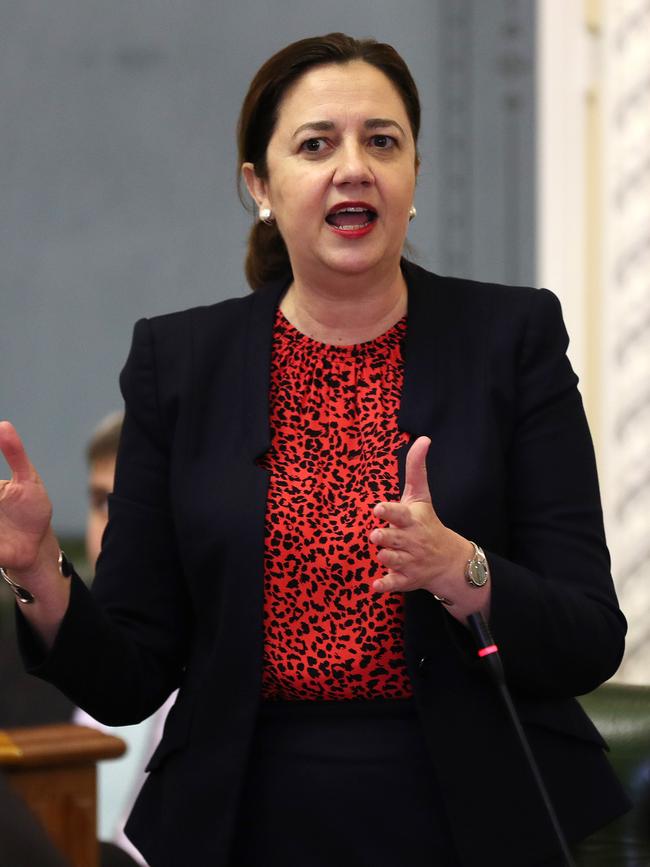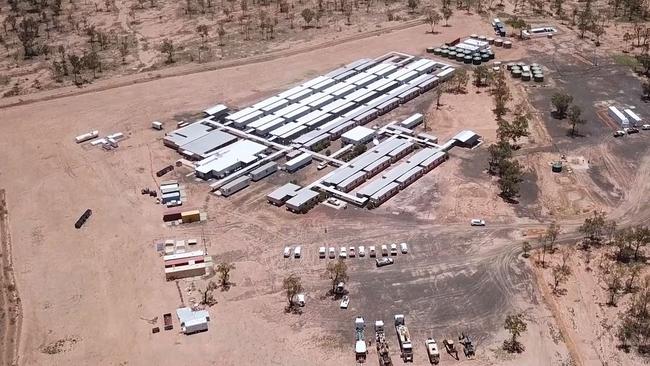
The first spans nearly nine years: the duration of the approvals process that wound a serpentine path between Brisbane and Canberra.
The second is 26 days: the elapse between a federal election at which voters savaged the ALP in provincial Queensland, delivering a wakeup that Premier Annastacia Palaszczuk finally heeded today, ending the interminable delays.

While the sign off by the state environment department on Adani’s groundwater management plan is not the last word on the mine — approvals for the rail link, airport and all-important royalties deal are yet to come — it clears the way for construction to start after all these years of back and forth.
This saga does not reflect well on Australia’s regulators, especially in Queensland. What should have been a straightforward assessment and implementation program was traduced when politics trumped proper process time after time, delivering second-best outcomes at each turn.
No one’s hands are clean. On the eve of the election, then federal environment minister Melissa Price waved through commonwealth permits for the water plan under pressure from the Queensland Nationals. The political pay-off for the Coalition was evident on May 18 when the ALP primary vote collapsed in regional Queensland; but questions rightly persist over the hurry up that was evidently issued to the Canberra bureaucracy.
These pale, however, against the state Labor government’s ham-fisted handling of Adani. Premiers of both persuasions in Anna Bligh (ALP) and Campbell Newman (LNP) wooed the Indian company while Palaszczuk led a delegation to the subcontinent in March 2017 to lock in the investment, sweetening the deal with a promise of royalty concessions.

But the dysfunction inside her government boiled up — Palaszczuk is a centrist from the Labor right, while the numbers in caucus and cabinet are controlled by the left led by Deputy Premier and Treasurer Jackie Trad — ensnaring the royalties arrangement in a revolt by left ministers.
Palaszczuk then disavowed a commitment to support Adani’s application for a federal loan to construct a freight line to the coast. The fate of a rare bird, the black throated finch, suddenly emerged as a do-or-die issue for the mine: after the feds approved Adani’s avian management plan, the Queenslanders baulked last month, delaying the project indefinitely.
Adani’s groundwater strategy was referred to the CSIRO and Geoscience Australia for review, dragging the chain as reports bounced between the company, the external agencies and the state Department of Environment and Science.
Not before time, Palaszczuk hit the reset button on May 24, ordering the co-ordinator-general to fast track the approvals on the new, accelerated timeline. Today’s outcome was never seriously in doubt — further delay would have been unthinkable for the Premier, exposing her to criticism that she had lost control of the government.
But any hope that Adani had of securing finance for the project from an investment community already wary of investing in coal evaporated long ago, and the mine it’s to fund from its own pocket will be a sixth the size of the behemoth originally planned.
All that pain for such a modest gain: no wonder they say politics is broken in Australia.




There are two timelines to keep in mind on Adani’s Carmichael coal mine now that it has the green light.